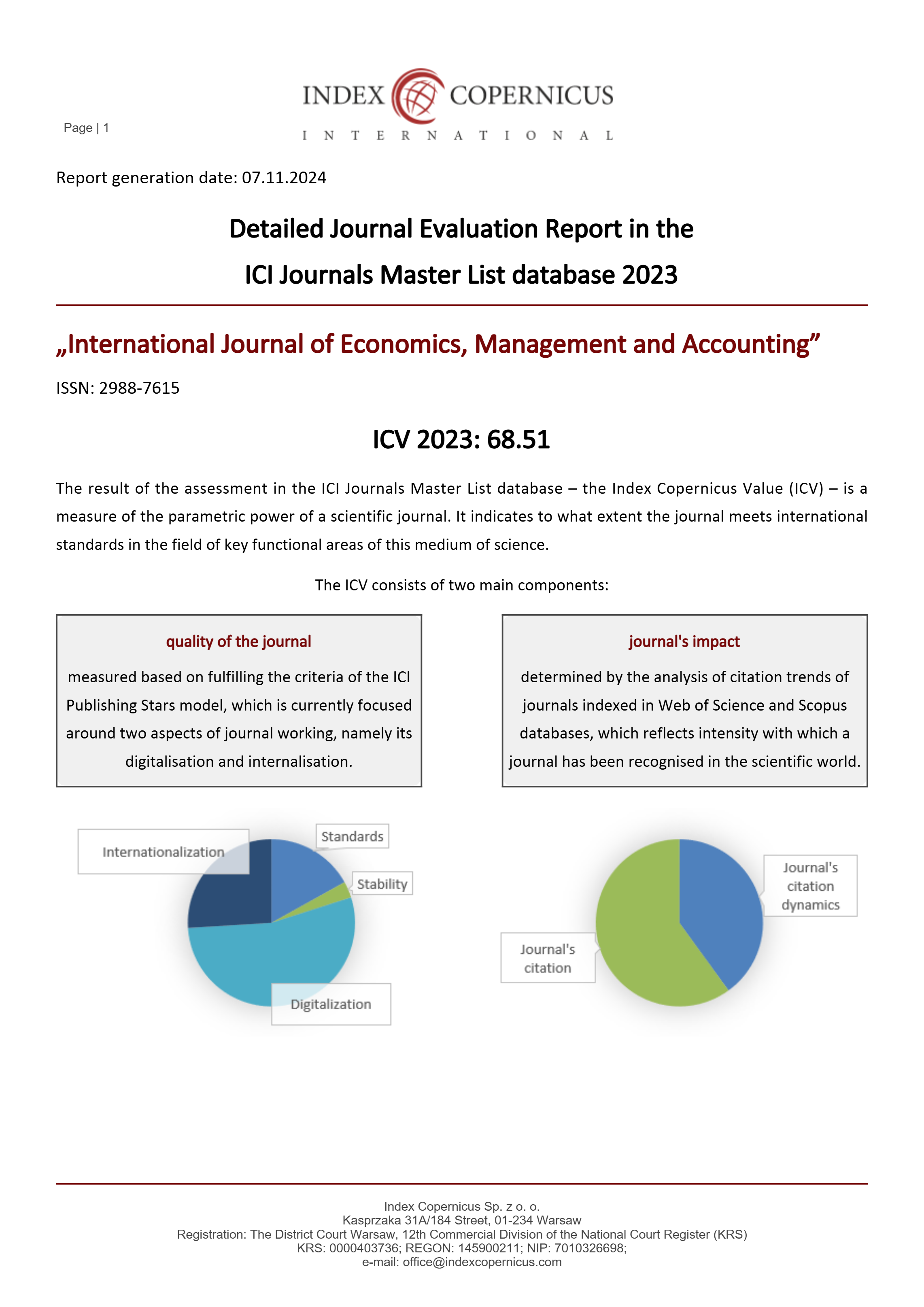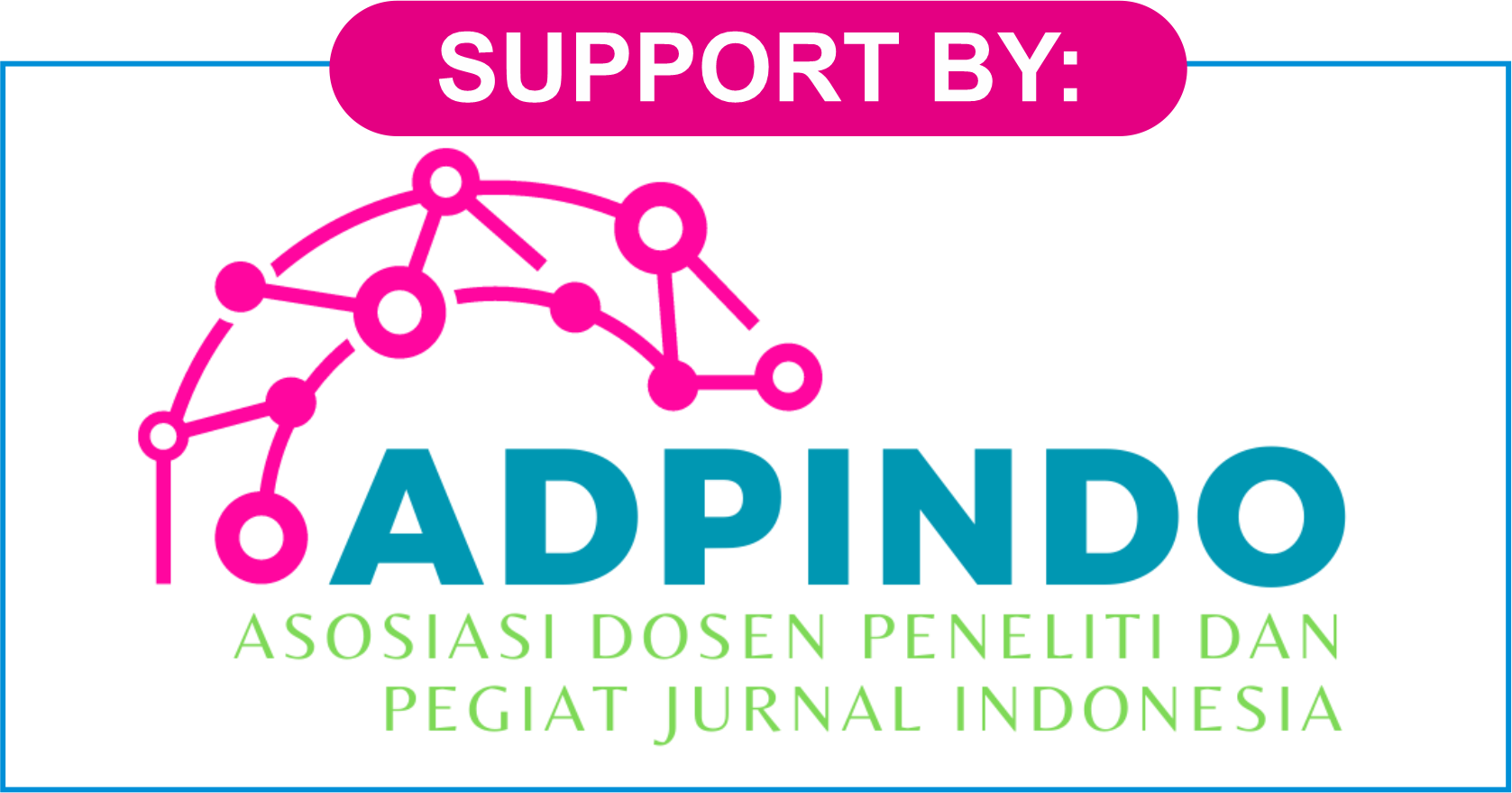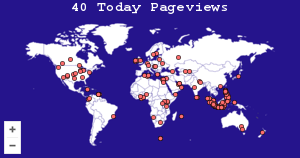The Influence of Informal Economy, Corruption, and Economic Freedom on Tax Revenue (Case Study: 35 World Countries, Period 2000-2020)
DOI:
https://doi.org/10.47353/ijema.v1i10.115Keywords:
Corruption, Corruption Perception Index, Economic Freedom, Informal Economy, Shadow Economy, Tax RevenueAbstract
A nation's economy now plays a significant role in its overall growth. A dependable source of money is necessary for the nation to have a robust and stable economy, and tax revenue is one of the most popular sources. This study tries to ascertain how much a nation may optimize its tax income and how far it can go past the issue of moral hazard behavior, which has the potential to destabilize the economy. Tax revenue, the informal economy, the corruption perception index, and economic freedom are the variables that were employed in this study. The regression model employed in this study is the Fixed Effect Model. The findings show that economic freedom and the informal economy have a negative and significant impact on tax revenue, while the corruption perception index variable has a positive and significant impact.
Downloads
References
Acikgoz, B., Amoah, A., & Yilmazer, M. (2016). Economic Freedom and Growth: A Panel Cointegration Approach. Panoeconomicus, 63(5), 541–562.
Alabede, J. O. (2018). Economic Freedom and Tax Revenue Performance in Sub-Saharan Africa. Journal of Financial Reporting and Accounting, 16(4), 610–638.
Azwar, & Mulyawan, A. W. (2017). Analisis Underground Economy Indonesia dan Potensi Penerimaan Pajak.
Baklouti, N., & Boujelbene, Y. (2020). Shadow Economy, Corruption, and Economic Growth: An Empirical Analysis. Review of Black Political Economy, 47(3), 276–294.
Borlea, S. N., Achim, M. V., & Miron, M. G. A. (2017). Corruption, Shadow Economy and Economic Growth: An Empirical Survey Across the European Union Countries. Studia Universitatis Vasile Goldis” Arad – Economics Series, 27(2), 19–32.
Busch Review, J. H., & Busch, J. H. (1968). Review: Asian Drama: An Inquiry into the Poverty of Nations. In Source: The Australian Quarterly (Vol. 40, Issue 4).
Compton, R. A., Giedeman, D. C., & Hoover, G. A. (2014). A Distributional Analysis of The Benefits of Economic Freedom. European Journal of Political Economy, 33, 121–133.
Dreher, A., & Herzfeld, T. (2005). The Economic Costs of Corruption: A Survey and New Evidence. Transparency International
Faal, E. (2003). Currency Demand The Underground Economy and Tax Evasion The Case of Guyana. IMF Working Paper.
Jahnke, B. (2017). How Does Petty Corruption Affect Tax Morale in Sub-Saharan Africa: An Empirical Analysis.
Leff, N. H. (1964). Economic Development Through Bureaucratic Corruption. American Behavioral Scientist, 8(3), 8–14.
Leys, C. (1965). What is the Problem About Corruption?. The Journal of Modern African Studies (Vol. 3, Issue 2).
Lien, D. (1986). A Note on Competitive Bribery Games. Economics Letters (Vol. 22).
Lukito, H., Firdaus, A., & Adi, N. (2023). Shadow Economy and its Impact on Tax Revenues in Mojokerto City. Jurnal Administrasi Bisnis Universitas Brawijaya (Issue 2).
Lutfi, A. F., Zainuri, Z., & Diartho, H. C. (2020). Dampak Korupsi Terhadap Pertumbuhan Ekonomi: Studi Kasus 4 Negara di ASEAN. E-Journal Ekonomi Bisnis Dan Akuntansi, 7(1), 30.
Maher, M. W. (1986). A Comparison of Bribery and Bidding in Thin Markets. In Economics Letters (Vol. 20).
Mauro, P. (1995). Corruption and Growth. Oxford Journals.
Naape, B. (2021). The Interplay Between Economic Freedom and Tax Revenue Performance: Panel Evidence from SADC. Journal of Economics, Business, & Accountancy Ventura, 24(2), 195.
Samuda, J. A. (2016). Underground Economy in Indonesia.
Schneider, F., & Enste, D. H. (2000). Shadow Economies: Size, Causes, and Consequences. Journal of Economic Literature, 38(1), 77–114.
Sokolovska, O. (2016). Trade Freedom and Revenue from Trade Taxes: a Cross-Country Analysis. Vestnik of Saint Petersburg University. Series 5. Economics, 2, 52–67.
Susan, & Ackerman, R. (1996). The Political Economy of Corruption–Causes and consequences.
Yuliawati, Y., & Sutrisno, P. (2021). Faktor Yang Mempengaruhi Penghindaran Pajak. Jurnal Informasi, Perpajakan, Akuntansi, dan Keuangan Publik, 16(2), 203–222.
Zaman, G., & Goschin, Z. (2015). Shadow Economy and Economic Growth in Romania. Cons and Pros. Procedia Economics and Finance, 22, 80–87.
Downloads
Published
How to Cite
Issue
Section
License
Copyright (c) 2024 Herza Hendradijaya, Marselina Djayasinga

This work is licensed under a Creative Commons Attribution 4.0 International License.











